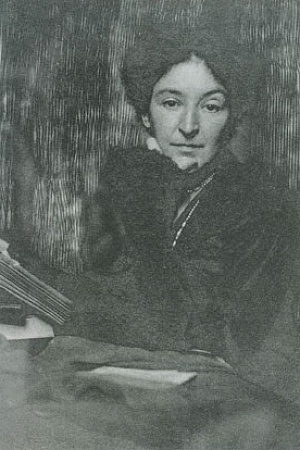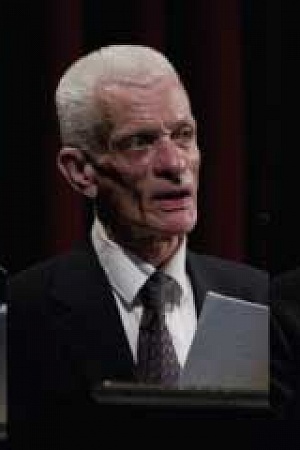Response to Robert Dessaix's 'Nice Work If You Can Get It'
Is there a difference between the word ‘multiculturalism’ and the practice? Jan Mahyuddin, who has been involved with multicultural literary projects, writes in response to some of the questions raised by Robert Dessaix about the definition and functions of multiculturalism.
For the past year I have been engaged in one of the activities that Robert Dessaix charges (ABR No. 129) are not only unnecessary but ‘harmful’ to the many writers briefly involved. I have been working as a Research Fellow at Deakin University with Sneja Gunew as the last in a line of bibliographers which has included Lolo Houbein and Alexandra Karakostas-Seda, updating and extending a bibliography of first and second generation Australian writers from non-Englishspeaking backgrounds. I have also been working on acquiring books by these writers to include in the collection of ‘Australian Literature’ at the Deakin University Library.
Publicity concerning the project has used the term ‘multicultural’, which didn’t prevent hundreds and hundreds of writers from responding. There are between nine hundred and a thousand entries for writers, both living and dead, in the bibliography. Eighty percent are first generation immigrants from a language and cultural background other than English. From the almost seven hundred responses from living authors, only one writer has asked not to be listed. A few took issue with the terms and suggested changes, but sent information anyway and wished us well. The overwhelming majority of writers and community groups with whom I have communicated has so swamped us with information that I’ve been amazed at the volume of the response.
Robert Dessaix argues that the bibliography and consequent library collection shouldn’t exist because many hundreds of these writers simply don’t exist. They don’t exist because they don’t fit the single regulation ‘identity’ Dessaix prescribes for all writers in Australia. They don’t exist ‘in English’, so they don’t exist as ‘Australian’. He writes, ‘To be “an Australian writer” (as opposed to just writing in Australia) you have to have a native’s knowledge of English – or your translator does’. Since these writers don’t exist ‘in English’, they don’t, in Dessaix’s terms, exist as ‘Australian’. What fate for them? Where if not in Dessaix’s ‘Australia’ is their place in the production of creative writing? Somewhere else? Nowhere?
Dessaix argues directly from the premise that Australia is ‘an English-speaking country’, but his premise is false. Australia’s official, national and undeniably dominant language may be described as ‘English’. Just what is ‘Oz English’ remains debateable, as we all know there are many Englishes in this country. The reality, however, of our linguistic practice is that Australia is a multilingual country whose more than·ninety culturally diverse groups communicate in more than thirty languages that do not originate here. And that does not include those Aboriginal Australian languages that have survived two hundred years of exclusion. So clear is this reality that Australia’s national languages policy delineates English as the primary language of social cohesion and languages other than English as context, these not only to be maintained but also to be developed as part of Australia’s culture.
On one hand Dessaix posits and defends a culturally diverse Australia, which he declares he enjoys. On the other, he denies its multilingual reality, demanding that the cultural expression called creative writing be published, circulated, and judged in one language. The non-monocultural society is to define, produce, and reproduce monolingually?
Dessaix’s argument that ‘if it isn’t in English it isn’t “Australian”’ is dressed up as a lively attack on words. Which words? – those such as ‘multicultural’ which writers and critics have used to describe the ways that have been sought to validate, legitimise, and give authority to our differences which endeavouring not to offend each other. From Dessaix’s pen this word indeed makes new offence. The impact and the usefulness of a word is ever in the intent of the person who uses it, as Dessaix so unwittingly demonstrates. Ania Walwicz may describe herself as a ‘fat writer’, but could you or I, or Robert Dessaix, without her authorisation, use it of her and not give her offence?
Dessaix’s use of ‘foreign’, unexamined and unqualified, in the phrase ‘foreign language’ (foreign to whom, to Dessaix himself, foreign to Australia, foreign outside Australia?) irks me. His insensitive use of ‘native’ in the phrase ‘native English’ offends me greatly. This in an Australia where it could be said nonAboriginal Australians have been lately learning how not to offend Aboriginal Australians? It is equally difficult to put gracefully aside the extraordinary assumption that there is such a thing as a static, perfect English that some of us have and others can aspire to.
Dessaix would have us believe that ‘It’s the situation of being a writer from a non-English speaking background in an English-speaking country that marginalises writers’ and labelling writers with that background ‘multicultural’ that keeps them chained to the margins.
Indeed, no. The ‘English-speaking country’ does not marginalise the writer from a non-English speaking background. The arrogant ‘Englo’-centrism within a country that converses in English, and many other languages, the refusal (is it also fear?) to admit languages other than English to some of the ‘down on the ground’ business of production, dissemination and valuing of Australian writing marginalises writers from a non-English speaking background.
And it is not the use of the word ‘multicultural’ in any context, but profound ignorance in denying the inseparability of language and identity that imposes chains, and causes inestimable harm. Beneath Dessaix’s conjuring with words lies a simple (and resoundingly ironic) reality. Many of the writers about and to whom he talks won’t hear him question their place in Australian writing because he is discussing it in English.
There is one, perhaps, the least inept, use of the term ‘multicultural’ that I adhere to. It is that which describes a culturally diverse Australian society which is now conceptually and behaviourally ‘large’ enough to allow individuals to define identity in a number of ways. This ‘Australia’ allows the individual to say ‘I am Australian’ in any language and suffer no harm.
Deakin’s bibliography and the library collection projects have certainly hit the ‘identity’ nerve in Australian writers. Many of the letters we’ve received have offered personal examinations of the writers’ sense of place, of belonging. Cumulatively they provide evidence of goodwill towards the project. They also offer a record of the pain so rarely confronted or dealt with in the genteel world of writing about writing and writers.
Most disturbing to me have been the number of grateful responses. This ‘gratitude’ may be a reaction to interest shown, notice taken, respect paid. Perhaps I am discomfited because we have not been the focus for a righteous anger from writers whose cultural contribution after so many years of exclusion has been recognised and included by the still Englo-centric academic structure.
As a document the bibliography constitutes a series of records. The autobiographical information offers a sociological record of lives committed to writing in spite of oppression, catastrophe, displacement, alienation, and waste. How should a bibliographer respond to apologies that no further information can be given because past work, past records have been bombed in Lebanon or Vietnam, seized in Chile or Poland? Biographical material has also captured more than one hundred years of literary activity in languages other than English in this country: literary groups and societies, newspapers and small presses, theatre groups and film cooperatives, libraries and archive collections. Most of this activity occurred without Englo-Australia knowing or showing interest.
If the writing such activities sought to encourage, support and record has had a place in a larger Australia (or indeed outside Australia) it has been by virtue of being adopted into language departments in tertiary institutions where it has also struggled to fit. The Australian writer who writes in a language other than English must respond to publishers demands to write in a language that has not ossified from a different use nor become too tainted by ‘Australianisms’. This in order to please not only readers in Australia but also readers in the country of origin. Damned either way, not only may your English not do, neither may your Italian or Greek, Arabic or Vietnamese. It isn’t only the Australian world of books and writing that has shown limited imagination in treating the products of biculturalism.
Dessaix concludes his article with a revamped prescription for Australian writers who write in languages other than English – get yourself translated only this time do it ‘professionally’. From the beginning of his article he has been cavalier about the difficulties and costs individual writers have faced in getting anything translated into any language. But the major problem with this view of the uses of translation is that it remains arrogantly Englo-centric. We are to translate non-English writing into English so that readers such as he can make judgements on whether this really is writing worthy of being called ‘Australian’ and ‘good’ – still a one-way traffic in which, once again, the non-English is considered unable to offer anything to the English.
There is indeed much work to be done in translation of Australian writing, from English into many other languages, from many other languages into English. And there is much to be done in supporting and promoting translators specialising in creative writing. But we need the promotion of an Australian readership o0f Australian writing that reads multilingually and that assumes that to talk about Australian writing is to talk about wiring in more than one language. Why can’t we promote an environment from childhood that validates Australia’s many languages? Why can’t we so engender curiosity about all of our languages that their learning becomes entrenched in Australia’s schooling, tertiary education and the production of books and writing? These are not new thoughts, language teachers in Australia have been urging similar approaches for decades.
Dessaix cites with approval a comment from George Papaellinas that ‘multiculturalism’ in the production of books and writing has been nothing other than a ‘creation of the marketplace’. Unfortunately, the marketplace for such writing has not yet been developed, but if it were, wouldn’t it be a truly splendid thing and a boost to Australian publishing?
The skills that the market requires exist already in the pool of publishers and printers who have produced newspapers and authorpublished books in languages other than English for many years. The new, computer-driven technology exists to reduce the costs of printing in more than one language. If we consider only the existing readership of those many newspapers and books, we know that there is a demand. Recent projects undertaken by the NSW State Library and the Victorian Ministry of the Arts in order to determine what and how much people read in languages other than English have found, for example, that Australian readers in Vietnamese acquire and circulate large numbers of books written and published not here, but in the USA or Canada, where migrants have also settled.
Why aren’t these and translations and bilingual editions being published here? Do we lack the entrepreneurial skills, or does our Englo-centrism continue to stifle any possibility that a bold, imaginative multilingual publishing company (or many) might evolve to really test the multicultural market in books and writing? It troubles me to see, for example, the Gould Bird League of Victoria publish material in seven or eight languages or to see Choice magazine offer an information hotline in more than one language and yet to see so very little occurring with creative writing. Are the economics of the creative writing publishing industry so prohibitively different?
History has long taught us that the imposition of monolingualism in a multilingual society is the most expedient road to enforced monoculturalism (imperialism? totalitarianism?). If we wish not to be history’s captives then Robert Dessaix and you and I still have much to do to ensure that what we have to say in one of our languages will be heard in all of them.










Leave a comment
If you are an ABR subscriber, you will need to sign in to post a comment.
If you have forgotten your sign in details, or if you receive an error message when trying to submit your comment, please email your comment (and the name of the article to which it relates) to ABR Comments. We will review your comment and, subject to approval, we will post it under your name.
Please note that all comments must be approved by ABR and comply with our Terms & Conditions.